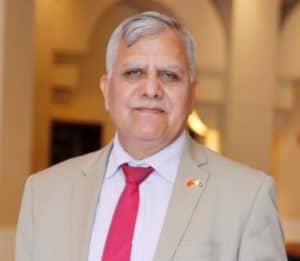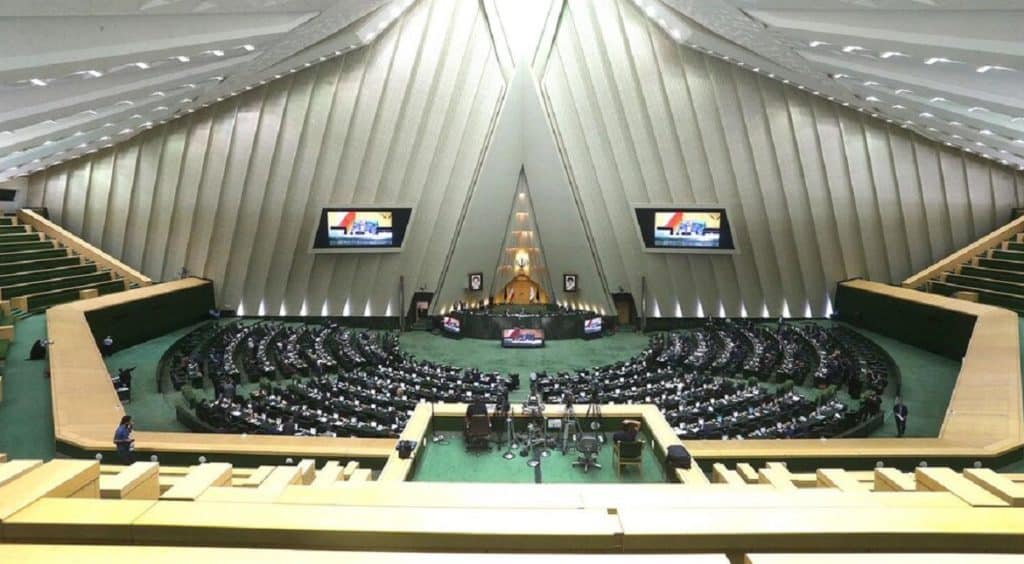By Prof. Engr. Zamir Ahmed Awan
President Joe Biden, during his election campaign, hinted at resuming the Nuclear Deal with Iran. He has taken initiatives to engage Iran and is waiting for an appropriate opportunity.

The current geopolitics forced the US to focus on one front or only a few fronts. It requires the US to prioritize its foreign policy. It seems the most important to the US at this moment is the Ukrainian crisis. So it seems, the US is putting all other agendas on secondary importance and trying to focus only on Ukraine. It has been observed that US diplomacy toward Latin America and the Middle East may soften a bit to spare more energy on Ukraine.
The US was engaged with Iran over the nuclear deal for a period of time. But, the major hurdle was a lack of trust. Iran signed the Joint Comprehensive Plan of Action (JCPOA), a detailed, 159-page agreement with five annexes with the P5+1 (China, France, Germany, Russia, the United Kingdom, and the United States) on July 14, 2015. The nuclear deal was endorsed by UN Security Council Resolution 2231, adopted on July 20, 2015. Iran’s compliance with the nuclear-related provisions of the JCPOA was verified by the International Atomic Energy Agency (IAEA) according to certain requirements set forth in the agreement. Iran was abiding by the agreement in true spirit and was verified by the IAEA.
President Trump withdrew from JCPOA on May 8, 2018, unilaterally. While all other signatories and IAEA were convinced to stay in agreement with Iran. The US imposed sanctions on Iran instantly after withdrawal, without justifications for such unilateral decisions.
Iran was very annoyed by this decision, and considered the lack of American credibility as a major obstacle in resuming the agreement.
Recently an overwhelming majority of Iranian lawmakers have defined strict conditions for a return to the country’s 2015 nuclear deal as an agreement with world powers in Vienna appears close. In a statement read out on Sunday, 250 legislators in the 290-member parliament – in control of conservatives and hardliners since 2020 – called on President Ebrahim Raisi to adhere to their conditions in restoring the Joint Comprehensive Plan of Action (JCPOA).
They said the “cruel and terrorist” American government – and its “weak and contemptible” followers France, Germany, and the United Kingdom – have shown they are not bound by any agreement over the past few years, so Iran must learn from the experience and set clear red lines.
The legislators defined those as receiving a guarantee by the US and the so-called E3 that they will not abandon the nuclear deal again – as Washington did unilaterally in 2018 under former President Donald Trump, who pulled out and imposed punishing sanctions.
“The US regime and other countries party to the JCPOA must pledge that they won’t use the snapback mechanism,” they wrote in reference to a clause defined in the nuclear accord that automatically reimposes United Nations sanctions on Iran if it breaches the deal.
The parliamentarians also asserted all sanctions imposed under “false excuses” must be lifted – which they defined as nuclear, terrorism, missile, and human rights designations, in addition to those under the Iran Sanctions Act (ISA), Countering America’s Adversaries Through Sanctions Act (CAATSA), and U-Turn sanctions on dollar transactions.
Iranian concerns must be resolved well in advance before reaching any agreement regarding the resumption of JCPOA. The US must understand the changed geopolitics, where the US is not the only superpower, and have to respect principles and international bindings. The US must restore its credibility, before moving toward any agreement. The US needs to show its sincerity and guarantee legal bindings. If the US follows a rational approach and responsible behaviors, the deal can be restored and the regions can maintain it as nuclear-free.
Author: Prof. Engr. Zamir Ahmed Awan – Sinologist (ex-Diplomat), Editor, Analyst, Non-Resident Fellow of CCG (Center for China and Globalization), National University of Sciences and Technology (NUST), Islamabad, Pakistan.
(The views and opinions expressed in this article are only of the authors and do not necessarily reflect the views, opinion or position of World Geostrategic Insights).







